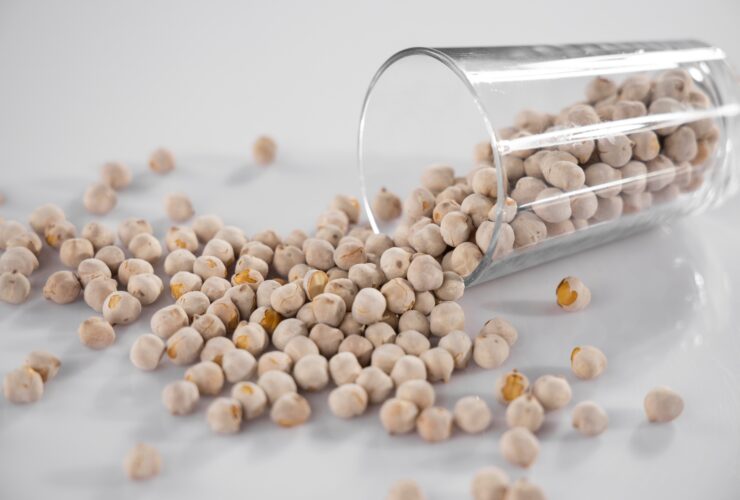As one of three macronutrients, protein literally forms the building blocks of our bodies. Some of its roles include creating and repairing tissues, boosting energy, regulating hormones, and safeguarding a strong immune system by warding off illness and disease.
Protein is so talked-up in the media and in marketing, many people worry that they aren’t eating enough of it. In actuality, most of us get enough or sometimes even too much protein in our diets! There is at least a little protein in many things we eat and we really don’t need a ton for our bodies to function properly. About 15% of daily calories from protein (50 grams for the average adult) will meet basic needs, but I believe eating as much as a third of your daily calories from protein is both safe and beneficial.
Protein is used in many bodily functions including cell maintenance and repair, blood clotting and the production of antibodies. It is the primary component of many body tissues such as skin, hair, and muscle. We need the most protein when we are growing (childhood and pregnancy) and repairing (injury or recovery from intense strength training). Protein is digested more slowly than carbohydrates and helps increase feelings of satisfaction – aka my favorite word, satiety.
Research from the Nurse’s Health Study shows the average American adult, aged 19 – 30, eats about 91 grams/day. So we’re eating enough of it; the struggle for most people is eating the best kinds of protein, and eating a little protein at every meal and snack rather than loading up at dinner.
But protein can be easily found also in plant-based sources which are associated with long-term health and longevity, for some of you, it can be tough to get plant-based protein in your diet. Here are 10 easy and stress-free ways to get more plant-based protein in your diet:
1. Mix hemp hearts, which are a complete plant-based protein, into smoothies or toss them on top of salads, soups are wraps.
2. Love lentils! They come in several colors and can be used in salads, soups, or on top of roasted veggies.
3. Replace your rice with quinoa, another complete plant-based protein.
4. Enjoy edamame in salads, soups, and snacks. Like hemp and quinoa, it’s a complete protein and it provides 18-22 grams of protein per cup.
5. Enjoy chia seeds in puddings or oatmeal. These protein-rich seeds take any flavors you throw at them.
6. Toss your home-popped organic popcorn with nutritional yeast, a cheesy substitute for dairy that offers 8-10 grams of protein per 2 tablespoons.
7. Sneak spirulina into your smoothies. It is an excellent source of protein plus an impressive range of vitamins and minerals. When added to a smoothie, it won’t change the taste and it will brighten your greens.
8. Replace store-bought chips or crackers with roasted chickpeas. They are amazing over salads, soups, and stews.
9. Use unsweetened organic nut butter as a spread on gluten-free breads, wraps, crudité veggies, or fresh dates.
10.Use unsweetened organic soy milk for your smoothies or morning high-fiber cereal bowl.





Leave a Reply